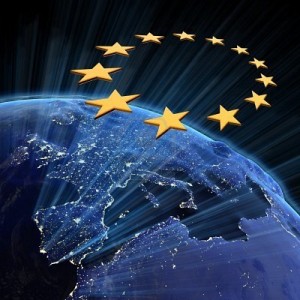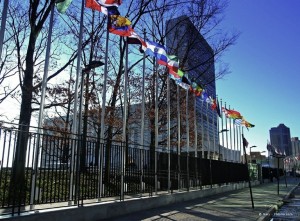As the highest principle of political and social life, the nation-state has become completely unworkable. A global polity urgently needs to emerge.
 Paraphrasing the architect of the European Union, Jean Monnet, referring to the countries of Europe after World War I: There will be no peace in the world if the international order continues to be constituted on the basis of national sovereignty … the countries of the world are too small to guarantee their peoples the necessary prosperity and social development.”
Paraphrasing the architect of the European Union, Jean Monnet, referring to the countries of Europe after World War I: There will be no peace in the world if the international order continues to be constituted on the basis of national sovereignty … the countries of the world are too small to guarantee their peoples the necessary prosperity and social development.”
Can the foundation and architecture for a global polity be poured and erected at this time, with a foundation large enough and a framework flexible enough to encompass all people of goodwill?
To my mind, any challenge of great complexity has to be approached with great simplicity. The questions regarding an effective global polity have to resonate with any thinking and feeling person anywhere on the planet. As the European Union demonstrates, the best-laid plans eventually fall on deaf ears and barren soil if the vision does not inspire ordinary citizens with a feeling of belonging, responsibility and participation.
Looking at the paramount issue of the global commons—the man-made threat of climatic and oceanic imbalance and the destruction of species diversity—humankind has reached the limit of redress possible through cooperation between the 200 fragmenting fragments of nations. The United Nations, based on the obsolete principle of the sovereignty of nation-states, is still necessary, but obviously insufficient. A new component, reflecting the global space, is urgently needed to catalyze reform in the UN and Bretton Woods economic institutions.
What is the first question in creating the architecture for an effective global polity? Tentatively presuming that that this is the time it can manifest and be built (timing isn’t everything, but nothing can happen without it), one of the first questions is this: Is a global polity first a function of institutions, or of human beings?
The emphasis has to be on the individual, not the institutions, on insight, not the Net. Undifferentiated citizenship is first and last a psychological issue, requiring a psychological revolution. Whenever the revolution in consciousness finally ignites, the political form it takes will be flexible and fitting to each land and region.
States that combine national sovereignty with religious identity are inherently brittle and repressive, as well as pernicious to their neighbors and the world at large. The conundrum is that no political vision can inspire without a spiritual foundation and wellspring, and yet religion and religious beliefs have to be kept distinct from political institutions and policies.
neighbors and the world at large. The conundrum is that no political vision can inspire without a spiritual foundation and wellspring, and yet religion and religious beliefs have to be kept distinct from political institutions and policies.
As I see it, the basic, ongoing component of a global polity are the creation of centers of insight in every land, having three distinct but overlapping facets: a space for spiritual awakening and friendship, without invoking religion and belief; a space for ongoing philosophical inquiry; and a space for political strategy and policy recommendations.
The Global Polity itself would be a consultative body providing nonbinding opinions, proposals and accountability to the UN and its member states. Though it would have nothing to do with military and political power, it would have great moral suasion, given the present vacuum of leadership in the world.
The preventable nightmare of Syria, and the ongoing humanitarian catastrophe—the bloodletting, torture and crimes against humanity— are a disgrace to the so-called international community, and proof of its ineffectuality. If the emphasis had been where it should have been, where it now most painfully needs to be—on the protection of unarmed civilians and prevention of humanitarian catastrophe—the war would almost certainly be over. Indeed, a civil war may not have ever started.
The lesson from Libya for the international community was to not pick sides under the guise of civilian protection. But the responsibility to protect in Syria still obtains, and the so-called leaders of the world, most notably in America, Russia and China, will be indicted by history for gross negligence.
Statehood under the principle of the sovereignty of humanity, rather than the obsolete Westphalian notion of nation-states, would greatly lessen conflicts between and within states, and greatly reduce fears of ‘separatism.’
It’s absolutely unconscionable that nations continue to spend trillions of dollars and expend innumerable human and natural resources on building up their militaries. If this egregiously wasteful and destructive pattern is taken as a given, humanity will never meet the global challenges that confront us. Why is Costa Rica, which dissolved its military decades ago, the almost singular exception?
True leadership in a global society derives from moral suasion, not military power. Leadership no longer flows from the irrelevant conception of national sovereignty and the failing structures and eroding power centers of nation-states. The last hope for the old form of leadership foundered on the hamstrung presidency of Barack Obama. A new dimension has opened up, but the vacuum of leadership of nation-states has yet to be filled in the global society. A Global Polity can begin to do so.
Despite or because of this age of the net and virtual reality, a Global Polity has to be given physical form in a given place, without becoming centralized and accumulating power. For many years I’ve felt it should manifest in East Africa, specifically Tanzania, the probable evolutionary birthplace of humankind. There are compelling environmental, economic and ethical reasons for world citizens to gather in that land as well.
We have to look beyond the creation of a Global Polity, and also be concerned about accretion. Wherever and whenever it manifests, a Global Polity must eschew power in perpetuity. But coercive power has become as outmoded as the sovereignty of nation-states, and antithetical to effectiveness in the global society.
Martin LeFevre

